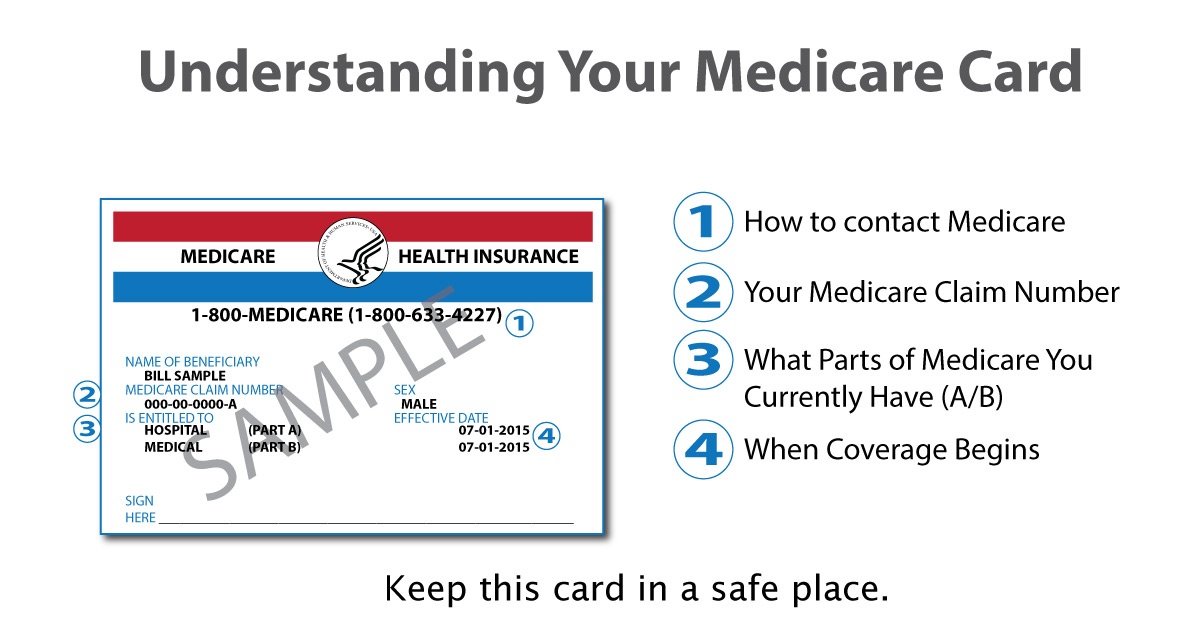Overview of Medicare
What is Medicare?
Medicare is a federal health insurance program for people age 65 or older, people of all ages with disabilities, and people with End-Stage Renal Disease (ESRD) or ALS — Lou Gehrig’s Disease.
Medicare is made up of four parts:
- Part A (Inpatient Hospital Insurance);
- Part B (Outpatient/Physician Insurance);
- Part C (Medicare Advantage Plans); and
- Part D (Prescription Drug Coverage).
Who is Eligible?
People who are at least 65 years of age
- Worked 10 or more years in Medicare-covered employment, and paid ( or spouse paid) Social Security for at least 40 quarters.
- Are citizens or permanent residents of the United States.
- Have been diagnosed with ESRD or ALS.
People who are not yet 65 years of age
- After 24 months of Social Security Disability Insurance income.
- Have been diagnosed with ESRD or ALS.
Original Medicare Plan
People with Original Medicare are called beneficiaries. Beneficiaries can go to any doctor, supplier, hospital, or another facility that accepts Medicare and is accepting new Medicare beneficiaries.
Beneficiaries with Original Medicare are responsible for a deductible and coinsurance for most covered services. The deductible is the amount a beneficiary must pay before Medicare begins to pay for services and supplies covered under the program. Coinsurance is the share of the cost for services that the beneficiary is responsible for after the deductible is met (normally a 20/80 percentage).
There are no maximum out-of-pocket limits for Original Medicare.
To help pay for some of the healthcare costs that Original Medicare doesn’t cover, beneficiaries may choose to purchase Medicare supplemental health insurance (Medigap policy). They may also choose to enroll in a Medicare Prescription Drug Plan (Medicare Part D) to receive prescription drug benefits.
Medicare beneficiaries are required to have Prescription Drug Coverage. If you don’t have coverage at least as good as Medicare Part D from an employer, union, or military, you will have to pay a penalty for each month you don’t have Part D coverage.
Services Typically Not Covered Under Original Medicare
- Hearing aids and exams for fitting them
- Routine foot care
- Healthcare while traveling outside of the U.S.
- Syringes or insulin, unless the insulin is used with an insulin pump
- Cosmetic surgery
Featured Medicare Articles
When To Apply For Medicare
Unlike Medicaid, there are specific enrollment periods. Missing an enrollment period could lead to life-long penalties. Read this article to learn about those crucial enrollment periods.
Where To Apply For Medicare In Houston
Read this article for a listing of offices to apply for Medicare in Houston. If you want to avoid the wait times of a Medicare office you’ll also find step by step instructions on applying via online or by phone.
Understanding Medicare Parts A, B, C, and D
Read this article to learn the different parts of Medicare. One part is specified for health coverage while the other is simply hospital insurance. Learn more about each part by reading this article.
Understanding Your Medicare Card
Important Medicare Contacts
Social Security Department
- To enroll or waive Medicare
- To discuss income assistance programs
1-800-772-1213 / TTY 1-800-325-0778
Online at: http://www.ssa.gov
Medicare
- Questions about Medicare
1-800-Medicare (1-800-633-4227)
TTY: 1-877-486-2048
You can talk with a customer service representative 24 hours a day, 7 days a week.
Online at: http://www.medicare.gov



